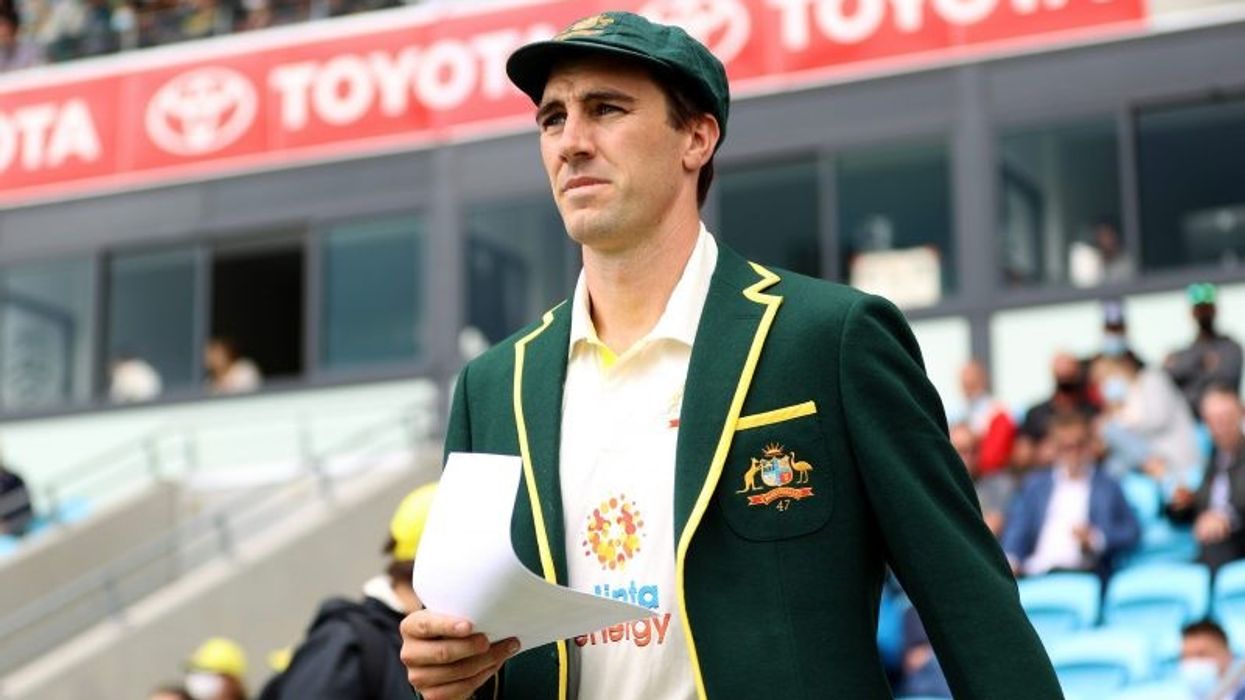Australian skipper Pat Cummins was thrilled to claim a historic Test series in Pakistan just months after their Ashes victory, on their first tour to the country in 24 years.
"I think everyone is totally elated. Winning at home in the Ashes series and winning overseas doesn't happen very often," said Cummins, whose team arrived on the back of a 4-0 Ashes win over England in January.
"It was real toil for the last 25 to 30 days and to come here was totally different to Australia, with different conditions," he added, after being declared man of the match for his eight wickets in the Test.
"The whole spirit has been fantastic. A lot of fun."
Australia capped the three-match series with a 115-run win in the final match in Lahore on Friday, with spinner Nathan Lyon taking 5-83 and Cummins 3-23.
Set 351 runs to win, Pakistan were bowled out for 235 in their second innings, losing their last five wickets for a mere 22 runs.
The first two Tests -- in Rawalpindi and Karachi -- ended in draws.
"I think in hindsight I would have liked one or two wickets overnight," said Cummins of Pakistan's 73-0 on Thursday.
"Getting top-order wickets with the new ball in the first 30 to 40 overs was tough but once the ball softens it starts reversing and I knew that close to going three runs an over (Pakistan) needed to bat exceptionally well."
Pakistan lost Abdullah Shafique on his overnight score of 27 and Azhar Ali for 17 before Lyon and Cummins destroyed them in the last two sessions.
Australia are in Pakistan for the first time since 1998, having previously refused to tour over security fears.
Security in Pakistan has improved dramatically over the past few years, the country making a slow return to hosting international cricket.
Player of the series Usman Khawaja, who was born in Pakistan's capital Islamabad before migrating with his parents to Australia as a four-year-old, said the team had had a lot of fun on the tour.
"I just want to thank Pakistan and the fans. We've had a great time. Everyone has been really welcoming. To win this game is the icing on the cake," said Khawaja, who scored 496 in the series with two hundreds and as many fifties.
An upset Pakistan captain Babar Azam refused to accept his team lost because of a defensive mindset.
"Our strategy was as per the situation of the match. We played the first session well but our two wickets were soft dismissals and that hurt us," he said.
For Pakistan, Imam-ul-Haq scored 70 and Azam managed 55.
"We showed intent to chase down the target. This is not correct to say that we played defensively. We fought well but in the end Australia proved to be the better side," Azam added.
Pakistan will now play three one-day internationals and a T20I against Australia -- all in Lahore.
The first ODI is on Tuesday.




